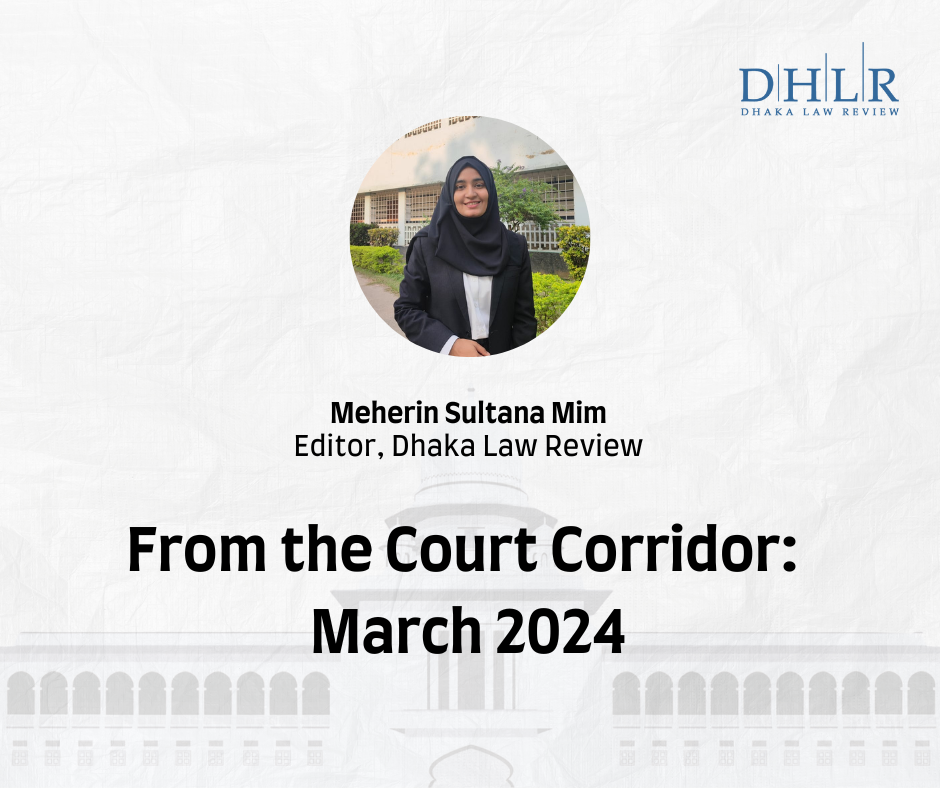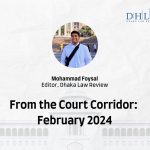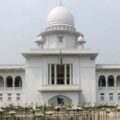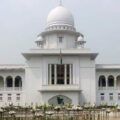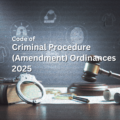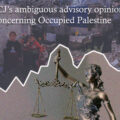This edition of ‘From the Court Corridor’ curates the notable pronouncements of the High Court Division (HCD) and the Appellate Division (AD) of the Supreme Court (SC) of Bangladesh in March 2024.
AD stayed HCD’s order: primary and secondary schools will remain open during Ramadan
On 8 February, when the government amended the holiday list for educational institutions, keeping the regular activities of secondary schools open for 15 days during the month of Ramadan, the Education Ministry issued a notice in this regard. The Primary and Mass Education Ministry issued another notice to maintain the activities of primary schools during the month of Ramadan for 10 days.
Back on 25 February, challenging the two orders of the government, Advocate Md Ilias Ali Mandal, a guardian, filed a writ petition. Secretaries to the Primary and Mass Education Ministry, Education Ministry, deputy secretary of Primary and Mass Education Ministry and deputy secretary of Education Ministry, Director General of the Directorate of Primary Education Department, and Director of Child Welfare Trust were made respondents thereto.
A HCD bench, jointly headed by Justice KM Kamrul Kader and Justice Khizir Hayat Lizu, ordered to stay a government decision to keep schools open for a certain period during Ramadan. Being dissatisfied with, a petition was filed challenging the HCD order presented by Attorney General AM Amin Uddin.
On 11 March 2024, Justice M Enayetur Rahim, Chamber Judge of the AD, passed the order upholding HCD’s order. On 12 March, after hearing the appeal, a five-member bench of AD led by Chief Justice Obaidul Hasan ordered that the educational institutions remain open until further notice.
The Primary Education (Compulsory) Act, 1990, and the Secondary and Higher Secondary Education Ordinance, 1961, mainly focus on the administration, regulation, management, and provision of education. However, guidelines issued by the Ministry of Education and relevant educational authorities respond to weather conditions, public holidays, public health, political unrest, schools’ operations, etc.
To ensure minimal disruptions to the academic calendar, the Ministry of Education issued directives regarding schools’ operations during Ramadan. Adjusted schedules and shortened school hours were also part of directives to respect the religious practices of the Muslim community while making sure academic activities were not disproportionately hindered.
Time to enact a non-bailable clause for hurting religious sentiment under the Cyber Security Act, HCD recommended
Based on writing a vulgar comment on a Facebook page on 2 November last year, the accused, Md Selim Khan, intentionally hurt religious values and sentiments, insulted the Islamic faith with the intention of creating a riot, and intentionally posted the said post with the intention of severely hurting religious sentiments.
On 4 November 2023, a case under the Cyber Security Act 2023 was lodged. Kushtia Additional Sessions Judge Ruhul Amin rejected the accused’s prayer for bail petition, and then a bail petition was filed before HCD.
Before the HCD, a bench of Justice Md Rezaul Hasan and Justice Fahmida Quader while granting bail, set forth the directive that the government should enact a law making it a non-bailable offence to insult or blaspheme the Quran, the Prophet Muhammad (PBUH), and all other religious scriptures and avatars with the maximum punishment of death or life imprisonment. Deputy Attorney General AKM Amin Uddin Manik confirmed the matter, expressing its significance.
The Digital Security Act 2018 is replaced by the Cyber Security Act 2023, In the former one, publication or broadcast of information hurting religious values or sentiment was a non-bailable offence and punished with imprisonment for a term not exceeding 5 years, or with a fine not exceeding 10 lac BDT, or with both under section 28. In comparison, the latest enactment, the Cyber Security Act 2023, provides the offence of hurting religious values and sentiments as a bailable clause and punishes it with imprisonment for a term not exceeding 2 years, or with a fine not exceeding 5 lac BDT, or with both.
Hurting religious sentiment has no statutory definition; it is vague in terms, subjective, and open to interpretation. In such circumstances, making section 28 of the Cyber Security Act, 2023, a non-bailable offence will impact freedom of expression and potentially misuse of the law by authorities. In addition, what constitutes ‘hurting religious sentiment’ must be made unambiguous and definite. Judgments which provide directives may be able to resolve this matter to a great degree.
HCD issued a rule on the protection of waterbodies and a ban on housing projects at Gozairar Beel, Savar
Bangladesh Environmental Law Association (BELA) filed a case, in the form of public interest litigation, alleging unlawful earth filling, unapproved housing projects and failure to protect waterbodies, flood water flowing areas, etc against the secretary of the Ministry of Housing and Public Works, the Secretary of the Ministry of Agriculture, the Secretary of the Ministry of Lands, the Secretary of the Ministry of Environment, Forest and Climate Change, Rajuk Chairman, Director General of Department of Environment, Deputy Commissioner of Dhaka, Superintendent of Police of Dhaka, Chief of Rajuk City planners, Savar Upazila Nirbahi Officer, Managing Directors of Uttaran Properties Limited and Achieve Corporation.
Gozairar Beel is 10 km in length and 4 km in width and consists of about 600 acres in Isharkandi, Manosantosh, and Satishkandi Mouza of Yarpur union in Savar upazila, where unapproved earth filling and unauthorised housing projects have been carried out, affecting main flood flow zone areas under RAJUK’s Detailed Area Plan. The activities of Uttaran Properties Limited and Achieve Corporation fall in contravention to public interest, which in turn is also contrary to the prevailing laws in the country.
The division bench of the HCD, comprising Justice Mostafa Zaman Islam and Justice Md. Atabullah, directed that waterbodies be restored and protected, and that soil filling, unauthorised plot sales, housing projects at Gozairar Beel, as well as adjacent lands at Savar, be banned.
To protect waterbodies, sustainable management of water resources, e.g., rivers, lakes, beels, streams, fountains, etc., the Environment Conservation Act of 1995, Mega City, Divisional Town and District Town’s municipal areas including country’s all the municipal areas’ playground, open space, park and Natural Water Reservoir Conservation Act, 2000, the Water Act, 2013 are significant legislations.
Under these enactments, the Executive Committee, Department of Environment (DoE), and District Commissioner are responsible for implementing the legislation. Due to a lack of a proper monitoring system, a lack of coordination, limited resources, and poor enforcement of the law, the waterbodies in Bangladesh are not well protected. Nevertheless, encroachment of legislation by unauthorised earth filling, illegal structures, housing projects, and grabbing waterbodies are punishable offences under the law.
The HCD, in the case of Human Rights and Peace for Bangladesh vs. Bangladesh and ors. (writ petition no. 13989/2016), popularly known as the Turag river case, passed directives to protect rivers and waterbodies in line with public interest with the aim of preserving Bangladesh’s ecology, biodiversity, and ecological balance. Furthermore, the National River Conservation Commission was made the guardian of all rivers and waterbodies in Bangladesh.
It is time to reinforce the National River Conservation Commission Act of 2013 in order to prevent illegal river overreach, pollution of the water and environment, pollution of waterbodies caused by industries, unauthorised construction of structures, and various anomalies.
